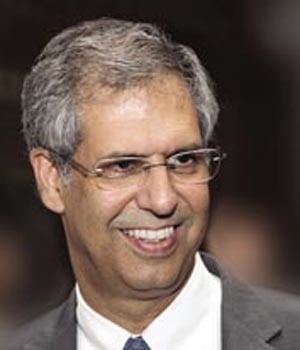
As companies worldwide strive to increase profits for their shareholders, Indian multinational group Tata Sons employs a different model – it gives away two-thirds of its profits to philanthropic endeavours.
The Indian giant has operations in more than 100 countries over six continents. Its interests range from steel production to automobiles, and it also has a large presence in the hospitality industry through its Taj and Vivanta chain of hotels. Tata also provides IT solutions for businesses.
Last year, the group had a combined revenue of $108 billion (R1.2 trillion), and 66% of its profit went to charitable initiatives.
The money is managed by a number of trusts run independently of the business and goes towards funding a wide range of charitable projects in India, including:
. The Tata Institute of Social Sciences – a fully fledged university with campuses in a number of Indian cities, including Mumbai and Hyderabad, which offer a range of disciplines, including politics, public policy and law;
. The Tata Memorial Hospital, which is a specialist cancer treatment and research centre in Mumbai;
. The Tata Institute of Fundamental Research, in Mumbai; and
. The National Centre for the Performing Arts, also in Mumbai.
Tata trusts also provide funding to small-scale farmers, healthcare and nutrition facilities, nongovernmental organisations and arts and culture programmes.
With 68% of its revenue now coming from outside India, the company is hoping to reproduce its unique model in the communities where it operates worldwide.
At a press briefing in Mumbai, Mukund Rajan, chief ethics officer and brand custodian of the Tata Group, said: “We are committed to improving the quality of life of communities through programmes in areas such as health, education and vocational training.”
In Kenya, Tata Chemicals operates Africa’s biggest soda ash plant in the remote Masai village of Magadi on the Rift Valley, 120km south of the capital, Nairobi. Soda ash is a key ingredient in basic household chemicals such as soaps and detergents. It is also used in glass making.
in Magadi, Tata Chemicals is the biggest contributor to the local hospital, providing subsidised healthcare. It has also built four schools and provided bursaries and skills training to locals.
The company’s charitable roots stem from its founder, Jamsetji Tata, who started the company more than 140 years ago. But instead of throwing money solely at poverty-relief initiatives, he strongly believed in giving out money based on merit and ultimate self-reliance.
Tata’s Africa operations, run from Johannesburg, contributed $2.2 billion to group revenue over the past financial year.
Noel Tata, chair of Tata International, said the company wanted to expand its footprint on the continent and believed it could double its earnings in the next five years.
“Our key work in Africa is to train local talent and have those trained locals work in workshops and managerial posts,” he said




 Publications
Publications
 Partners
Partners








